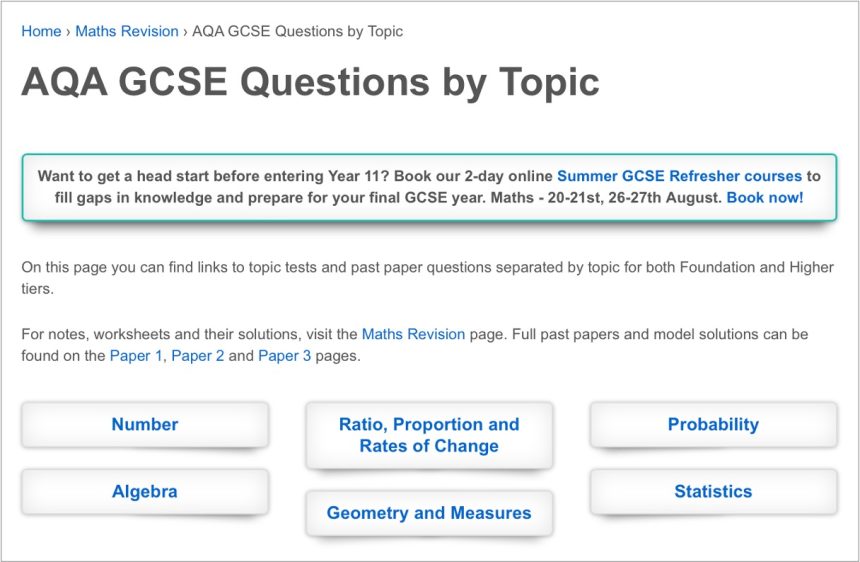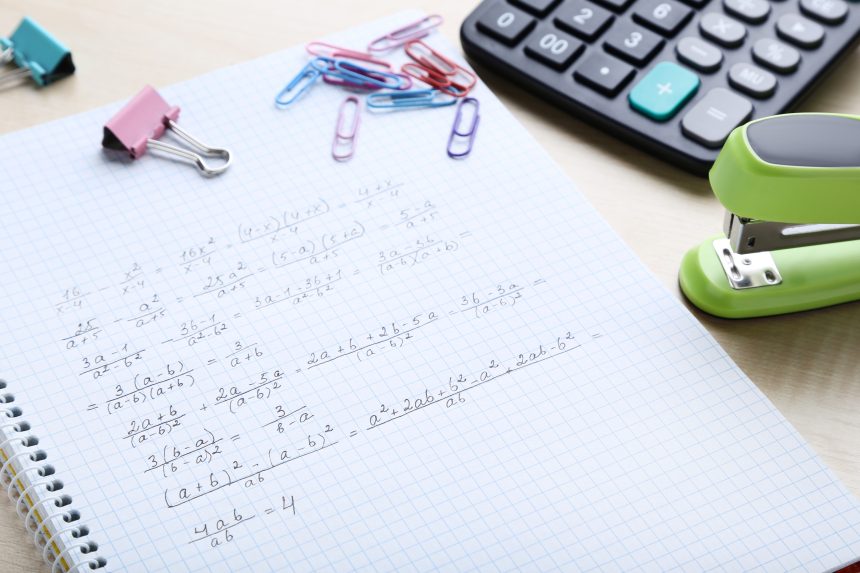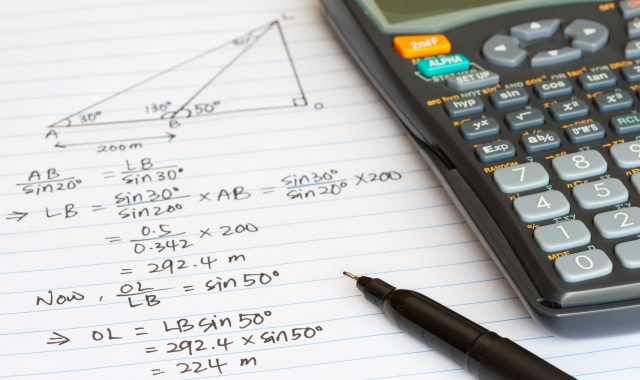Contents:
Achieving a grade 9 in GCSE maths is a challenging task, and it can be quite intimidating for students. When I sat my GCSEs, the new grading system had just been rolled out; I remember the mystery that surrounded talk of the elusive top level. Even now, the legend surrounding level 9 persists. In 2022, just over 5% of students in England got a 9 in maths. Reserved for the very top-achieving students, it’s hard to know what you need to do to get it, and for many, it feels like an elusive, unreachable goal. But this isn’t the case!
In this article, I’ll provide some personal tips and tricks to give you that last push over the top. So here you go: how to get a 9 in GCSE Maths (from someone who got one).
1. Build good habits
Your exams may take place at the end of Year 11, but good preparation can start the first day of Year 10. Putting in effort throughout your GCSE years will equip you with experience and practice − things which are crucial in a subject like maths, which is largely skill-based. By the time May rolls around, most of the grunt work will have been done, which will make revision a lot easier.
Prepare for end-of-unit tests and mocks as you would for the final exam. Scale down the time spent revising so it’s proportionate to how important the test is (you don’t need to study for an end-of-unit test two months in advance!) but keep everything else the same. This will give you an accurate picture of how you’re doing and how effective your study methods are. Exam technique is an important skill to master but can’t really be taught, so make the most of every opportunity you get to work on it.
2. Do the time
There’s no getting around it: you have to put the work in. You learn maths best by doing it. But be mindful of how you put the time in. If you sit loads of past papers in a row, it’s hard to tell if you’re riding on the coattails of your short term memory or if you’ve truly got the hang of a topic. Another risk of ‘bingeing’ maths in this way is that all those numbers can blend together and you can lose track of which question needs which method.
Divide your maths revision up with your other subjects. Little and often is best, so you can become comfortable tackling problems without regurgitating what you did just 1 hour ago.
If you’re looking for ways to keep your maths skills sharp without overdoing it, sites like 5-a-day are great for providing variety and manageable workloads.

3. Look at the methods
Maths is very different from other GCSE subjects because it relies on application of knowledge. This makes revision daunting. However, you can still use your favourite revision techniques: it’s all about using them in the right way. Using flashcards to memorise key formulae is great, but they can also be used to learn the steps required to solve a quadratic equation. Switching facts for instructions in your go-to revision materials is a useful accompaniment to past papers and textbook questions.
Write instructions to tackle different question types. Try to condense the information so a total novice can follow along; this is a skill in and of itself! It will help you work efficiently, and the process of being purposeful with your words will cement the method in your brain.
While this can help you get started with maths revision, be aware that this activity alone won’t be sufficient. Creativity, experimentation, and adaptability are key for getting a 9, so don’t rely on this to get the job done! View it as a good foundation from which to think imaginatively and thoughtfully.
4. Make the most of past papers
This is repeated so often it barely seems worth saying, but I will anyway. Exam boards provide whole libraries of resources, so use them! To get a 9, you should really be completing every past paper available; you could even repeat some to see if you’ve improved.
Start with past papers as soon as possible. The questions won’t be too different from the ones in your textbook, and it’ll get you familiar with how examiners want you to think.
Past papers can equip you with a wealth of information if you know how to use them. Find your weaknesses and target them with questions by topic. Identify common questions and topics that crop up each year. When marking your work, study the mark schemes closely. Identify the key steps and the unnecessary steps in your working. Mark schemes sometimes give alternative methods, too, which will help grow your toolkit. Continually evaluating your progress like this is important.

Questions by Topic for AQA, Edexcel, and OCR GCSE Maths on physicsandmathstutor.com.
5. Read the examiners’ reports
Examiner reports are fantastic as they give you free insight into the examiners’ brains. They point out what sorts of things students struggle with, any trends they’ve noticed, and sometimes might even give away what sort of topics and questions they like to ask. Read them to help you assess your performance in past papers.
6. Study the specification
You don’t need to know the syllabus inside out, but read it over and check off the points you definitely can do, the ones you definitely can’t, and the ones you want to work on a bit more. Use it to guide your revision and make sure you cover everything so you’re not caught off guard on the day.
Together, the specification, past papers, and examiners’ reports tell you everything you need to succeed in GCSE maths. If you use them to your advantage, when it comes to sitting the exam, you’ll know exactly what is expected of you.
7. Every mark (and minute) counts
Being able to do well in exams is a skill in itself, regardless of how good you are at maths. You’re on a deadline, so find ways to save yourself time: scrub up on your mental maths so you don’t waste time on straightforward calculations, and make sure you know how to use the calculator you’ll have in the exam. Get the basics down: that two-mark geometry question might be the difference between an 8 and a 9!

8. Don’t be intimidated by it
Confidence can work wonders. Be self-assured: know that you’ve put the work in and are capable. Accept that some things are out of your control and there’s no use dedicating energy to them. Ultimately, someone has to get a 9 − why shouldn’t it be you?
Achieving a 9 in GCSE Maths is certainly possible if you adopt the right strategies and mindset. Remember to build good habits early, manage your time effectively, utilise past papers, dissect examiner reports, study the specification, and make every mark and minute count. Most importantly, don’t let intimidation hold you back. Believe in your abilities, and you’ll be well on your way to reaching your academic goals.








Comments